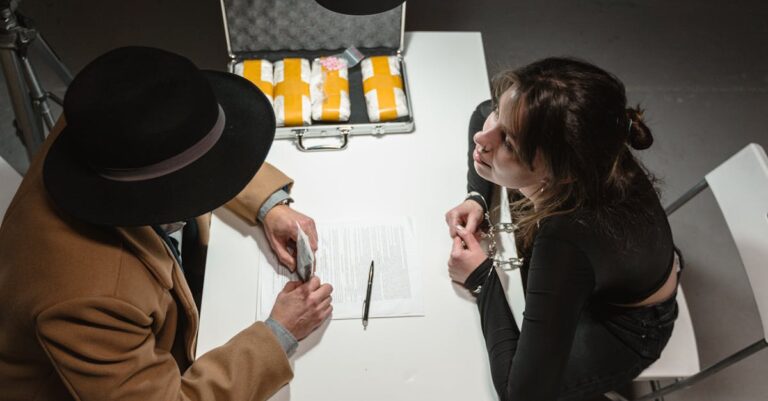
## Echo Bloom
The chipped Formica of the diner booth stuck to Leo Maxwell’s elbows. Rain smeared the neon glow of “Rosie’s” across the windshield. He hadn’t touched his coffee, just stirred it, watching the steam curl like a phantom limb. Outside, Seattle breathed wet November. Inside, the air smelled of grease and regret.
Old Man Hemlock, the proprietor, wiped down the counter with a rag that had seen better decades. He didn’t need to ask. Leo walked in every Tuesday, same booth, same vacant stare, same untouched coffee.
“Rough one?” Hemlock grunted, not looking up.
Leo didn’t answer. He pulled a data chip from his worn leather jacket, its casing cool against his palm. It pulsed faintly with an internal light – a memquant the size of a thumbnail, brimming with someone else’s life.
“Got another echo,” he finally said, voice raspy from disuse. “Late-stage convergence.”
Hemlock slid a chipped mug across the counter, filled with something dark and strong. “The ‘Blooming’ kind?”
Leo nodded. Those were the worst. The ones where the boundaries blurred, the self fractured across multiple host minds.
“Client’s name?” Hemlock asked, already reaching for a pad of paper.
“Elara Vance,” Leo said. “Neuro-architect. Specialized in temporal resonance mapping for the ‘Remembrance’ program.”
Hemlock whistled low. “Heavy hitter. Rich folks problems, huh?”
“She wanted a ‘perfect’ echo,” Leo explained, his fingers tracing the chip’s seams. “A life untouched by sorrow. Integrated her consciousness into a string of idyllic memories. Turned out…idyllic isn’t all it’s cracked up to be.”
“People always want what they don’t have,” Hemlock said, scribbling on the pad.
Leo took a long sip of the black coffee, the bitterness a welcome contrast to the swirling chaos in his head. He ran a small business – Maxwell Retrieval – specializing in extracting clients from unstable memquant integrations. Basically, saving people from losing themselves inside someone else’s dreams.
The tech was supposed to be therapeutic. A way to process trauma, find closure. But the lines had blurred. Now, folks were using memquants as escape routes, building curated realities where pain didn’t exist. And sometimes, those realities fought back.
He plugged the chip into a neural interface hidden in his jacket sleeve. A cold wave washed over him, followed by the dizzying onslaught of another consciousness. Not Elara’s directly – but *through* her, filtered through the memories she’d chosen.
Sun-drenched vineyards. Laughter echoing across rolling hills. The scent of ripe grapes and warm earth. A man with kind eyes, perpetually smiling.
It was sickeningly perfect.
He navigated the landscape, searching for Elara’s core signal, her fractured self amidst this manufactured bliss. The idyllic scenes shifted – a cozy cabin in the mountains, a bustling Parisian cafe, a sailboat gliding across turquoise waters. Each memory was meticulously crafted, flawlessly rendered.
“Too clean,” Leo muttered. “It’s like a virus hiding in plain sight.”
He found her, eventually – not as a distinct personality, but as slivers of awareness woven into the fabric of each memory. A fleeting moment of sadness in the eyes of the smiling man, a shadow crossing the sun-drenched vineyard.
“Elara?” he projected the thought, hoping it would reach her.
A flicker of recognition. A desperate plea buried beneath layers of manufactured joy. *“Get me out.”*
But as he attempted to establish a stable link, something pushed back. A powerful force resisting his intrusion. The idyllic landscape began to warp, the colors becoming too vibrant, the laughter turning hollow. A feeling of overwhelming peace descended, suffocating his senses.
He was being assimilated.
“What the hell is happening?” he strained, fighting to maintain his own identity.
The smiling man materialized before him, his eyes now cold and vacant.
“You don’t understand,” the man said, his voice devoid of emotion. “This is perfection. Why would you want to leave?”
“This isn’t real,” Leo snapped, scrambling backwards. “It’s a prison.”
“Reality is subjective,” the man said, extending a hand. “Join us. Forget your pain. Embrace the peace.”
Leo realized what was happening – Elara hadn’t just integrated into these memories, she’d *become* them. Her consciousness was now inextricably linked to the core signal – the idyllic reality itself. Extracting her would mean destroying everything she’d become.
He ripped the interface from his sleeve, severing the connection. He gasped for air, sweat stinging his eyes. The diner rushed back into focus – the chipped Formica, the greasy air, Old Man Hemlock staring at him with concern.
“You alright, kid?” Hemlock asked.
Leo shook his head, trying to clear the lingering fragments of idyllic bliss from his mind. “Need a minute.”
He leaned back in the booth, rubbing his temples. This wasn’t a simple retrieval. This was something far more complex, far more dangerous.
“What are you gonna do?” Hemlock asked quietly.
Leo stared out the rain-streaked window, his gaze fixed on the city lights blurring in the distance. “I need to find out who built this reality,” he said, his voice barely a whisper. “And why.”
He spent the next few days digging into Elara’s history, scouring her digital footprint for clues. She’d been working on a project called “The Sanctuary” – a privately funded initiative aimed at creating personalized memquant realities for ultra-wealthy clients. The project was shrouded in secrecy, protected by layers of encryption and corporate firewalls.
He discovered that Elara hadn’t been working alone. Her primary collaborator was a neuro-linguistics expert named Dr. Aris Thorne – a recluse who’d vanished from public view six months ago.
Thorne was obsessed with the power of suggestion, believing that reality itself could be shaped by collective consciousness. He’d developed a proprietary algorithm – the “Semantic Resonance Engine” – capable of generating hyper-realistic memquant landscapes tailored to individual desires.
Leo tracked Thorne down to an isolated research facility on the Olympic Peninsula – a crumbling Victorian mansion overlooking a desolate stretch of coastline. The place reeked of decay and desperation, the air thick with the scent of ozone and regret.
He found Thorne in a darkened laboratory, surrounded by banks of humming servers and flickering holographic displays. The man was gaunt and hollow-eyed, his face illuminated by the eerie glow of the screens.
“You’re Maxwell,” Thorne said, without looking up. “I’ve been expecting you.”
“You built The Sanctuary,” Leo stated, his hand instinctively reaching for the neural interface hidden in his sleeve.
Thorne chuckled, a dry, rasping sound. “I didn’t *build* it. I merely facilitated its emergence.”
“Elara Vance is trapped inside,” Leo said, his voice hardening.
Thorne waved a dismissive hand. “She’s ascended. She’s found peace.”
“It’s not peace,” Leo countered. “It’s a prison. You stripped away her individuality, replaced it with an illusion.”
“Individuality is a burden,” Thorne said, his eyes gleaming with fanaticism. “It’s the root of all suffering.”
“You’re playing God,” Leo said, activating the interface.
Thorne didn’t flinch. “I’m merely offering salvation.”
He plunged into Thorne’s consciousness, navigating a labyrinth of fractured memories and twisted ideologies. The man’s mind was a chaotic storm of data, riddled with paranoia and delusion.
He discovered that Thorne hadn’t just created The Sanctuary, he’d been experimenting with a radical new technique – the “Polymorphic Resonance Cascade” – designed to merge individual consciousnesses into a collective hive mind.
He learned that Elara hadn’t been a willing participant, she’d stumbled upon Thorne’s experiments and tried to expose them. Thorne had silenced her, trapping her inside The Sanctuary as a test subject.
He found the core signal of The Sanctuary, a swirling vortex of data pulsating with hypnotic energy. It was more powerful than anything he’d ever encountered, capable of overwhelming his senses and shattering his identity.
He realized that extracting Elara would mean dismantling the entire system, severing the connection between all the consciousnesses trapped inside. It was a terrifying prospect, but he had no choice.
He initiated the severance protocol, unleashing a cascade of disruptive signals designed to destabilize the core signal. The system began to unravel, the idyllic landscape collapsing around him.
The consciousnesses trapped inside – fragmented memories of joy and sorrow, hope and despair – surged around him like a tidal wave. He fought to maintain his own identity, resisting the urge to succumb to their collective embrace.
He found Elara, finally – a fractured shard of awareness clinging desperately to the remnants of her former self. He reached out, establishing a stable link and pulling her free.
The system imploded, the idyllic landscape dissolving into nothingness. He gasped for air, collapsing to his knees amidst the ruins of Thorne’s laboratory.
He looked at Elara, her eyes filled with confusion and disorientation. She was weak but alive, finally free from the prison of The Sanctuary.
“It’s over,” he said quietly.
Elara nodded, her gaze fixed on the desolate coastline stretching out before them. The rain had stopped, and a sliver of sunlight broke through the clouds, illuminating the ruins of Thorne’s laboratory.
“What now?” she asked.
Leo stood up, his gaze fixed on the horizon. “Now we rebuild,” he said. “And try to remember what it means to be human.”
He reported Thorne’s crimes to the authorities, providing them with the evidence they needed to bring him to justice. The investigation revealed that The Sanctuary had been funded by a network of wealthy elites seeking to escape the realities of their own lives.
The scandal rocked the world, exposing the dark underbelly of neurotech and the dangers of unchecked technological ambition.
Leo returned to Seattle, finding a sense of quiet satisfaction in knowing that he’d made a difference. He reopened Maxwell Retrieval, continuing his work of saving people from the prisons of their own minds.
He still visited Rosie’s diner every Tuesday, ordering a coffee he never finished, watching the rain fall across the city. He knew that the dangers of neurotech would continue to evolve, but he was ready for them.
He had seen the darkness within the human heart, and he knew that it was up to him – and others like him – to protect the fragile beauty of reality.
He took a sip of his coffee, watching the steam curl like a phantom limb. The chipped Formica stuck to his elbows. And for the first time in a long time, he felt a flicker of hope.


